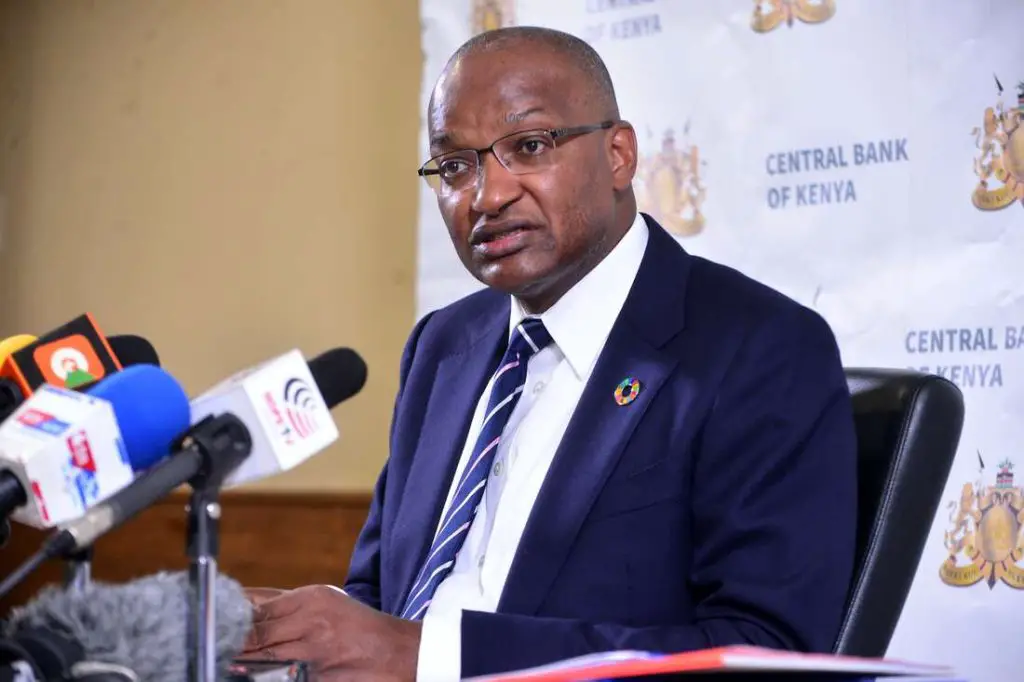CBK Governor Patrick Njoroge has cautioned that hasty policies implemented by advanced economies may hinder the expansion of emerging markets in the face of rising inflation.
Speaking on Bloomberg Television in New York, Njoroge warned that quick choices like the US Fed rate hike could cause things to be harder than anticipated for developing nations like Kenya.
- Speaking on Bloomberg Television in New York, Njoroge warned that quick choices like the US Fed rate hike could cause things to be harder than anticipated for developing nations
- According to Njoroge, it may be harder to borrow even as inflation increases due to advanced economies’ practices, such as rate hikes
- On Wednesday, 21 September 2022, the US Federal Reserve increased its benchmark interest rate by significant three-quarters of a point for the third time in a row, a rapid pace that is increasing the likelihood of an eventual recession
According to Njoroge, it may be harder to borrow even as inflation increases due to advanced economies’ practices, such as rate hikes, which have shut us out of the financial system.
He mentioned that he had a discussion with Federal Reserve Chair Jerome Powell to urge the US Fed to give the impact of its policies on developing nations more consideration.
In order to ensure that emerging economies are not left on their own, he stated, “we need support from mature economies.”
Njoroge pointed out that despite this, emerging markets like Kenya have exhibited exceptional resilience in the face of global shocks, continuing to thrive.
He said that even if the value of the US dollar was at its highest point in 20 years, Kenya’s flexible exchange rate system had made it easier for us to cope with the shock.
On Thursday, 22 September 2022, the dollar strengthened globally, and increasing demand from oil importers resulted in a decline in the value of the Kenyan shilling.
The Central Bank of Kenya quoted the local unit at 120.55 on Wednesday, up from the day’s closing price of 120.30.
Traders claimed that the US Federal Reserve’s decision to raise its interest rate benchmark by 75 basis points on Wednesday, which has boosted the dollar internationally, was a contributing factor in the shilling’s most recent record low.
Despite this, Njoroge insisted that the strong policies will continue to support the shilling even as market pressures persist.
“Our monetary policy is focused on market stability, and even as prices continue to spike, we will stick with our policies,” he said.
Njoroge mentioned that the Monetary Policy Committee would meet the following week and added that whatever decisions they make will be based on data and will help to stabilise the economy.
On Wednesday, 21 September 2022, the US Federal Reserve increased its benchmark interest rate by significant three-quarters of a point for the third time in a row, a rapid pace that is increasing the likelihood of an eventual recession.
In an effort to counteract global inflation, other wealthy economies like the United Kingdom, Norway, and Switzerland have also increased their bank rates.
Impact of US interest rates on emerging markets
Although the rate increases started to aid the US domestic economy, they are nevertheless expected to affect emerging markets.
Most recent experiences have demonstrated that rising interest rates frequently raise the cost of servicing emerging market debt denominated in US dollars, cause their currencies to depreciate, weaken demand for their exports to the US, and possibly cause capital outflows from lower-income economies.
When the IMF in April 2022 lowered its full-year growth projection for emerging and developing market nations from 4.8% to 3.8%, higher interest rates were mentioned as a contributing cause.
Higher interest rates have the major disadvantage of weakening the value of foreign currencies versus the dollar, making existing debt payments more expensive and frequently prompting an exodus of capital investment from emerging nations.
Emerging economy central banks have already begun hiking interest rates in order to support foreign exchange values, reduce inflation in their own economies, and pay down dollar-denominated debt.
Countries with ongoing trade deficits backed by debt denominated in dollars are probably more vulnerable to these possible knock-on consequences. Examples include Argentina, Brazil, Colombia, and Turkey, which among emerging countries, have had the greatest increases in bond yields since the end of 2020.
